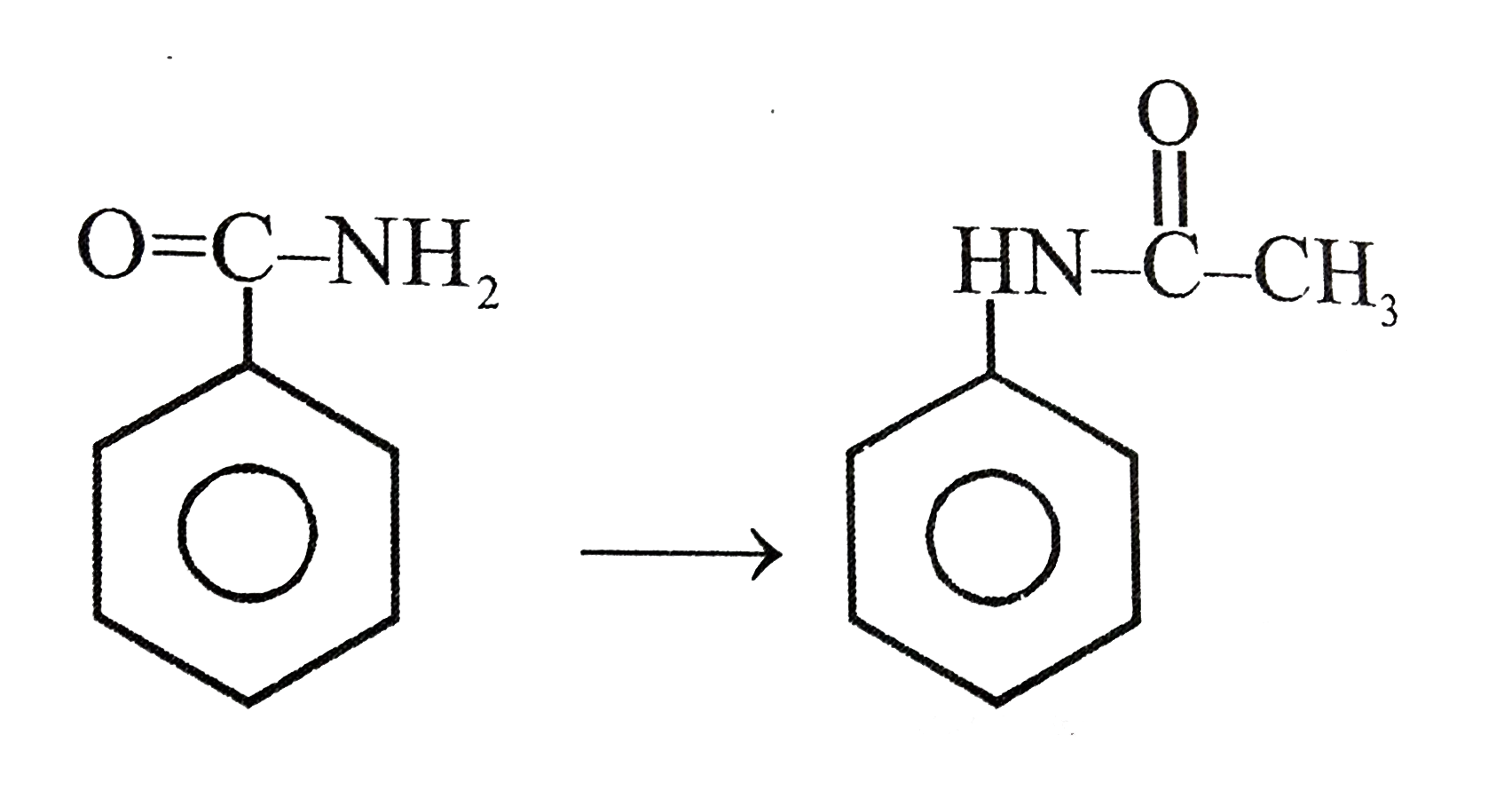The best reagent for converting an alcohol into the corrosponding chloride is
PCI5
PCI3
HCI/ZnCI2
SOCI2
The correct Answer is:D
To determine the best reagent for converting an alcohol into the corresponding chloride, we can analyze the options provided.
1. Identify the Reagents: The options provided are PCl5, PCl3, HCl with ZnCl2, and SOCl2.
2. Evaluate PCl5:
- PCl5 has five chlorine atoms bonded to phosphorus.
- The steric hindrance caused by the bulky PCl5 makes it less effective for this conversion.
- Conclusion: PCl5 is not the best reagent.
3. Evaluate PCl3:
- PCl3 has three chlorine atoms attached to phosphorus.
- Similar to PCl5, it also suffers from steric hindrance due to the bulky nature of the reagent.
- Conclusion: PCl3 is not the best reagent.
4. Evaluate HCl with ZnCl2 (Groove's Method):
- This method involves using HCl in the presence of ZnCl2 to convert alcohols into alkyl halides.
- However, this method can lead to the formation of carbocations and alkenes due to hyperconjugation, which is not desirable.
- Conclusion: Groove's method is not the best reagent.
5. Evaluate SOCl2 (Thionyl Chloride):
- SOCl2 is used in the Darzen's process to convert alcohols into alkyl halides.
- The reaction produces SO2 and HCl as by-products, which are gases and readily evolve out of the reaction mixture.
- This minimizes side reactions and makes the process cleaner and more efficient.
- Conclusion: SOCl2 is the best reagent for converting alcohols into the corresponding chlorides.
Final Answer:
The best reagent for converting an alcohol into the corresponding chloride is SOCl2 (Thionyl Chloride).
- PCl5 has five chlorine atoms bonded to phosphorus.
- The steric hindrance caused by the bulky PCl5 makes it less effective for this conversion.
- Conclusion: PCl5 is not the best reagent.
- PCl3 has three chlorine atoms attached to phosphorus.
- Similar to PCl5, it also suffers from steric hindrance due to the bulky nature of the reagent.
- Conclusion: PCl3 is not the best reagent.
- This method involves using HCl in the presence of ZnCl2 to convert alcohols into alkyl halides.
- However, this method can lead to the formation of carbocations and alkenes due to hyperconjugation, which is not desirable.
- Conclusion: Groove's method is not the best reagent.
- SOCl2 is used in the Darzen's process to convert alcohols into alkyl halides.
- The reaction produces SO2 and HCl as by-products, which are gases and readily evolve out of the reaction mixture.
- This minimizes side reactions and makes the process cleaner and more efficient.
- Conclusion: SOCl2 is the best reagent for converting alcohols into the corresponding chlorides.
The best reagent for converting an alcohol into the corresponding chloride is SOCl2 (Thionyl Chloride).
Topper's Solved these Questions
- HALOALKANES AND HALOARENES BOOK - AAKASH INSTITUTECHAPTER - HALOALKANES AND HALOARENES EXERCISE - ASSIGNMENT SECTON - A
45 Videos
- HALOALKANES AND HALOARENES BOOK - AAKASH INSTITUTECHAPTER - HALOALKANES AND HALOARENES EXERCISE - ASSIGNMENT SECTION - B
25 Videos
- HALOALKANES AND HALOARENES BOOK - AAKASH INSTITUTECHAPTER - HALOALKANES AND HALOARENES EXERCISE - Try Yourself
40 Videos
- GENERAL PRINCIPLES AND PROCESSES OF ISOLATION OF ELEMENTSBOOK - AAKASH INSTITUTECHAPTER - GENERAL PRINCIPLES AND PROCESSES OF ISOLATION OF ELEMENTSEXERCISE - Try Yourself
33 Videos
- HYDROCARBONSBOOK - AAKASH INSTITUTECHAPTER - HYDROCARBONSEXERCISE - Assignment(Section - D) (Assertion -Reason Type Question)
24 Videos
Similar Questions
Knowledge Check
The reagent needed for converting
 ACat. HydrogenationBH2/Lindlar Cat.CLi/NH3DLiAlH4
ACat. HydrogenationBH2/Lindlar Cat.CLi/NH3DLiAlH4The best reagent for converting ethanol to chloroethane is -
APCl3BPCl5CSOCl2DHCI+ZnCl2The reagents used to convert
 Ai. O3/Red. Ii. AlCl3 iii. MeCOOHBi. H2SO4+HgSO4 ii. H2O, heatCi. O3/Zn−AcOH ii. H2SO4+HgSO4 iii. H2O, heatDi. CH3COOH ii. H2O2+ΘOH/H2O
Ai. O3/Red. Ii. AlCl3 iii. MeCOOHBi. H2SO4+HgSO4 ii. H2O, heatCi. O3/Zn−AcOH ii. H2SO4+HgSO4 iii. H2O, heatDi. CH3COOH ii. H2O2+ΘOH/H2O
The best method for the conversion of an alcohol into an alkyl chloride is by treating the alcohol with
View SolutionThe reagents needed to convert :

View SolutionThe best reagent for converting 2-phenylpropanmide into 2-phenylpropanamine is ……………….
View SolutionThe best reagent for converting 2-phenylpropanamide into 2-phenylpropanamine is
View SolutionThe best reagent for converting 2-phenylpropanamide into 2-phenylpropanamine is….
View Solution
 is :
is :